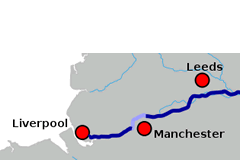I am sure I am not the only business owner who gets feedback from colleagues and clients alike that starts with the immortal word ‘everyone’!
‘Everyone’ said that event was great; ‘everyone’ thinks we are wrong about that particular issue; ‘everyone’ is complaining that we haven’t delivered a date with Beyonce for them; ‘everyone’ thinks David Moyes is doing a great job at Manchester United.
It takes little probing to realise that ‘everyone’ is the last person they spoke to, or the author of the last tweet they read. But in an age where we increasingly get our news from Twitter and other social media networks, and conversation and considered opinion is becoming a lost art, ‘everyone’ is having a much bigger influence on everyone’s thinking than ‘everyone’ should.
A snap on line poll of a hardly watched debate between the UKIP lummox Nigel Farrage and the increasingly irrelevant Nick Clegg had many people declaring this week that ‘everyone’ thinks the UK should pull out of Europe. At an event I took part in on Thursday morning about the International Festival for Business I was told that ‘everyone’ thinks it is an event that will be a damp squib. In my office last week one of my team told me that ‘everyone’ thinks that Downtown should stop hosting sexy networking evenings.
It is all nonsense of course. The overuse of ‘everyone’ has infiltrated everyone’s vocabulary and we need to challenge and push back when someone’s evidence is ‘everyone’.
I hope everyone who is reading this agrees with me, and vows to abandon using the phrase ‘everyone’ in the future.
A blog dedicated to a number of Downtown staff – you know who you are







